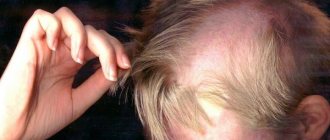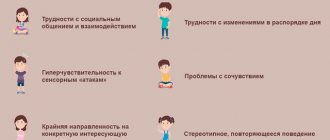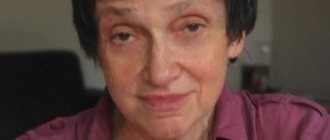Treatment of anxiety
To get rid of an obsessive state, psychologists and psychotherapists use a treatment complex consisting of consultations and, if necessary, the use of medications. Treatment development is carried out on a purely individual basis and depending on the type of anxiety disorder.
When the condition worsens, medications are prescribed. Depending on the symptoms manifested, several groups of tablets can be distinguished:
- Psychotropic substances - tranquilizers. Help relieve panic and constant feelings of tension. You can also get rid of suicidal intentions, as well as reduce aggressive behavior
- Antidepressants. Restores a stable emotional background, eliminates possible anxiety states and exacerbations
- Neuroleptics. This is relevant if the patient is in an inadequate condition. The effects of drugs are carried out on certain areas of the brain, which help to control the situation and show rationality in thinking.
- Sedatives. They have a calming effect, help reduce nervous tension, normalize sleep, and reduce the level of excitability.
- Nootropics help maintain the patient’s performance at the proper level, and also promote normal blood circulation
- Beta and alpha blockers. They help deactivate the receptors that perceive adrenaline. Helps improve the functioning of the autonomic nervous system.
Psychotherapy is an integral part of treatment. To do this, psychotherapists use various techniques, depending on the complexity of the disease and its progression. For treatment, hypnosis is used as an auxiliary method.
Treatment of anxiety in adults
The treatment program is developed individually, depending on the patient’s condition. So, for example, for some people it is enough to carry out persuasion techniques, as a result of which their condition significantly improves, but in advanced situations it is simply impossible to do without the use of medications.
Rational type beliefs often involve the use of psychotherapeutic techniques. In addition, the specialist constantly accompanies the patient, and also teaches how to cope with emerging exacerbations and interact normally with other members of society.
As with an anxious depressive state, many patients may be prescribed antidepressants, antipsychotics, and nootropics.
It is important to note that the patient’s work on his own condition is no less important. You can do breathing exercises or yoga, and walk in the fresh air as much as possible. It is not recommended to abuse alcohol or smoke cigarettes, as this reduces the effectiveness of treatment.
Anxiety in children
Psychologists and psychotherapists work with children at any stage of anxiety development. However, often one or both parents are included in the process to help improve and speed up the restoration of the child’s normal condition. And although an individual treatment plan is developed for each child, the general scheme is as follows:
- Psychotherapy. Typically, cognitive behavioral therapy is used to work. As a result, the child must learn to cope with assigned tasks and stressful conditions.
- Family psychotherapy. To eliminate the anxious state as quickly as possible, not only individual techniques are used, but also work with entire families and proper monitoring of the condition by a psychologist or psychotherapist. If there are difficulties in contact between family members
- The use of medications is possible only if the child cannot cope with anxiety even with the support of a psychotherapist. As a rule, anxiolytics are extremely rarely used under the age of 18 years.
Treatment of anxiety during menopause
Menopause is a transitional state of the female body as a result of hormonal changes. As a result, not only pathological changes in the functioning of the body, but also in the emotional state can be observed. The most well-known and popular method is hormone replacement therapy (HRT). However, its use is possible only if you have first consulted with a specialist.
Non-hormonal drugs are also often used to help overcome depression and reduce anxiety. Also one of the popular types of treatment is the use of SSRIs. But the drug often causes a decrease in libido. If side symptoms are diagnosed, then bupropion or duloxetine can be used as a replacement.
What medications are used to treat panic attacks?
Taking medications is one of the means of combating depression. We present to your attention a list of medications for panic attacks:
- Afobazole Taken three times after meals for 3-4 weeks. It is prescribed to patients who are susceptible to depression, suspiciousness and vulnerability. The medication helps relieve feelings of fear and anxiety. It also does not adversely affect the body and the entire system as a whole. Contraindicated in pregnant women and people with sensitivity to the ingredients included in the drug;
- glycine. Taking it, you can improve your mood and normalize your sleep. The drug will also help improve brain performance. It is used as a pill for panic attacks;
- atarax. The medicine treats allergic diseases and neuroses. It has contraindications and side effects, such as vomiting, decreased blood pressure and a feeling of fatigue. Consult your doctor before use;
- phenazepam. This drug is prescribed for panic attacks and obsessive states. It is also used to treat phobias. But the medication has a number of side effects: drowsiness, a person gets tired faster, a sore throat, diarrhea or constipation, and anemia may appear. It should be taken strictly according to the prescription 2-3 times a day according to a doctor’s prescription;
- grandaxin. The product helps the human body cope with stress. It is used for depressive and depressed states, neuroses. However, when taking it, reactions such as nausea, mild toothache, lethargy and aggressiveness may occur. It is not recommended for women who are breastfeeding or pregnant.
Symptoms and signs of anxiety in adults
Among the most common symptoms are the following:
- The person remains tense all the time
- Feeling of chills and general physical malaise
- A constant test of excitement
- Panic attacks
- Lack of ability to cope with your own anxiety.
Separately, there are physical aspects that manifest themselves in the form of intense headaches, stiffness in the shoulders and muscles.
Due to constant anxiety, each person begins to experience an independent struggle with his own “I”. The most common fear is a quick death, sweating increases, and the heartbeat becomes much faster.
Neuroleptics
When trying to classify antipsychotics, scientists primarily rely on their chemical structure:
- aliphatic phenothiazines - drugs whose antipsychotic activity is weakly expressed, they are aimed at sedation (calm down, help to sleep);
- butyrophenones (popular haloperidol) are powerful antipsychotics that have almost no sedative effect, they stop hallucinations and delusions;
- dibenzazepines have mild side effects, are better combined with other drugs, but have almost no sedative effect, and are aimed at relieving psychotic manifestations;
- Phenothiazine derivatives relieve pain and are prescribed for damaged blood vessels and thrombophilitis.
Neuroleptics or antipsychotics are atypical or typical, long-acting or non-long-acting. Typical antipsychotics are outdated drugs that do an excellent job of relieving psychotic symptoms, but have a high likelihood of side effects. Atypical is a modern version of antipsychotics that reduces the risk of side effects to a minimum. Long-acting antipsychotics have a long-lasting effect, their effect is noticeable for 20-30 days. They are not taken daily.
Neuroleptics eliminate severe fear, anxiety, agitation, and improve sleep. They are used for severe psychotic depression, the dosage is low. Neuroleptics are prescribed more often to patients with psychoses combined with psychomotor agitation. Less commonly used for apathy and lethargy.
Prescribing antipsychotics to children is a controversial issue in psychiatry. There is a lack of evidence-based medicine on this issue. Therefore, antipsychotics are prescribed to pediatric patients, but rarely, with caution and in small dosages.
Treatments for Anxiety
The main method of treatment is psychotherapy accompanied by an experienced psychologist or psychotherapist. In some cases, simple reassurance is enough for the patient to reduce anxiety. If this does not help the person, then medications are prescribed to help restore the patient’s normal condition.
Group treatment for anxiety
The group method of combating therapy is one of the most popular. It is important to note that it has been successfully practiced for many years in the USA and Western Europe. Before taking part in such an event, many people think about how effective it is and what exactly they have to do.
Typically, group therapy based on psychoanalysis is used to treat anxiety. During classes, people actively communicate with each other and understand the experiences. A psychologist at such an event only accompanies the process and tries not to interfere with it unless absolutely necessary. The main idea of therapy is the opportunity for each person to see from the outside their own experiences, reactions to emerging events, as well as interactions with other people.
Taken together, group therapy, along with other conventional treatments, produces excellent results and long-lasting positive improvements.
Sedatives
Not a recommendation. Any medications are taken only as prescribed by a doctor
Calming pills for health.
· What are sedatives?
Sedatives
are medications that can slow down brain activity, reduce irritability and arousal processes. Such drugs are used to relieve anxiety and irritation, and eliminate sleep disorders.
· In what cases is the use of sedatives indicated?
Doctors prescribe sedatives for sleep disorders and increased anxiety. Sedatives are also used during surgical interventions and painful, unpleasant procedures (eg colonoscopy, gastroesophagoscopy), which can increase the patient's anxiety and worry. Taking these drugs during surgery is necessary before general anesthesia. By themselves, they do not have an analgesic effect, but make the procedures easier to endure.
Sleep disturbance and increased anxiety are the first symptoms of stress. Stress is the body's reaction to various unfavorable factors affecting it. Small stressful situations are necessary to keep the body in good shape. But if stress becomes constant, a person needs to spend a lot of strength and energy to resist it, he becomes susceptible to illness, sleep disturbances, excess weight gain, mood changes and uncontrollable behavior. In a state of chronic stress, a person experiences a constant increase in blood pressure, glucose imbalance and its digestibility, which leads to the development of diabetes. All this leads to a sharp increase in the risk of developing cerebral stroke and heart attack.
The most common symptoms of stress are:
- increased irritability, dissatisfaction with people around you, the situation; -depression, weakness, severe fatigue, reluctance to do something; - restless sleep, complete lack of sleep (insomnia); - inability to relax, feeling of constant tension, feeling of trembling in the hands and body; -low concentration of attention, inability to perceive complex or new information, memory impairment; -lack of appetite or vice versa - excessive desire to consume, bad habits - smoking, drinking alcohol, narcotic substances.
The use of sedatives in case of chronic stress, along with other methods (elimination of stress factors, physiological procedures, correction of the psycho-emotional state), helps return the body to a comfortable state, increase immunity and improve the patient’s quality of life.
In adults, indications for the use of sedatives are life situations that place a person in a state of acute stress or constant psycho-emotional stress associated with work processes. Even physically healthy people who experience increased physical activity (professional athletes) experience excessive tension in the nervous system, which leads to disruption of the training process. Therefore, doctors often prescribe sedatives that help the body relieve stress and reduce anxiety.
In children, the development of the nervous system occurs gradually. At an earlier age, she may have increased excitability and sensitivity to stress factors. If symptoms of stress in a child are a regular occurrence, this may be a manifestation of an age-related crisis. At 3, 7 and 14 years old, a child overcomes the stage of growing up, so instability in behavior is not a pathology. But children's doctors recommend taking sedatives during this period to alleviate stress and make this stage go more smoothly. Also, during high mental stress, for example during exams, tests and tutoring, taking sedatives helps the child cope with stress more easily. It is necessary to understand that a child’s bad behavior and emotional instability may not be a manifestation of bad character, but a cry for help from his nervous system. Sedatives will allow the child to relieve anxiety and establish contact with the outside world.
Pregnancy is always stressful for the female body. Rapid changes in hormonal levels, poor health during toxicosis, possible problems during pregnancy - all this contributes to the emergence of neuroses. Excessive psychological stress can provoke an increase in uterine tone, which can lead to such serious complications as fetal hypoxia and even miscarriage. A mother's restless state can lead to the birth of an equally restless child. But taking sedatives during pregnancy is always prescribed with great caution. Most drugs do not have a proven lack of adverse effects on the fetus, which narrows the number of drugs that are safe for the child to take.
Older people are more likely to experience anxiety and worry than middle-aged people. Deterioration in the functioning of organ systems, a decrease in memory reserve, and a slowdown in thinking processes negatively affect the mental state. Due to increased anxiety, insomnia and feelings of powerlessness may occur. A sedative will improve the quality of life of an elderly person and will help overcome feelings of timidity, groundless fear, and irritability. For older people, herbal preparations that have a mild calming effect are recommended. They act very gently and are not addictive.
· How do sedatives work?
Let's take a closer look at how sedatives work. Sedatives work by changing certain nerve connections in the brain and central nervous system (CNS). In this case, they relax your body by slowing down your brain activity.
Two main processes occur in the human nervous system: inhibition and excitation. In a normal state, there is a balance of these processes. When necessary, a person is cheerful and energetic, or vice versa - calm and restrained. He can control his emotions and mood. If the balance is disturbed in the direction of increased inhibition, the person loses interest in life and becomes depressed. If excitement begins to prevail over inhibition, feelings of aggression and irritability appear. With prolonged arousal, aggression is replaced by fatigue, tearfulness, and impotence.
Sedatives enhance inhibition during increased nervous excitement and reduce the excitability of nerve cells. The mechanism of action is associated with a general inhibitory effect on the central nervous system (brain).
Based on the speed of onset of effect, sedatives can be divided into two groups:
1) Means of situational action; 2) Means of cumulative action; 3) Combined action agents.
Drugs of the first group are suitable for rapid action; they begin to work with 1 application. But they are powerless in cases of chronic stress. Drugs of the second group gain their effect within several weeks, but even after stopping the use they continue to have a calming effect.
There are also drugs, the effect of which does not develop so quickly, but as they are taken, they accumulate in the body and stabilize the nervous system. Such funds are taken in courses several times a year, and the cumulative effect will extend to the breaks between doses.
· The benefits and harms of sedatives.
Based on the survey results, people taking sedatives noted the following positive aspects of taking them: - relieving nervous tension (nervousness, fear, anxiety); -help in dealing with stress; -improved sleep and emotional state; -elimination of depression and fatigue; -reduced dependence on weather.
But it is worth understanding that, like any drug that has a serious effect on the nervous system, sedatives also have side effects. With proper selection of the drug and its administration, the risk of side effects is minimized. If taken incorrectly, side effects can occur even with herbal sedatives.
The most common side effects include: - addiction to the drug; - the so-called withdrawal syndrome when stopping the drug incorrectly. Abrupt withdrawal can lead to headaches, dizziness, severe ailments and a general deterioration in quality of life.
· Types of sedatives?
All sedative drugs can be divided into groups according to their pharmacological properties and the composition of the main active ingredient. We will analyze the most common groups, as their strength increases: · Herbal · Synthetic · Homeopathic medicines · Medicines with a combined composition · Antidepressants · Neuroleptics · Sedative tranquilizers
Herbal preparations.
Preparations from plant materials (valerian roots, motherwort leaves and flowers, passionflower shoots) have been used as sedatives for a very long time. This group of drugs is characterized by a mild cumulative effect, the possibility of long-term use without addiction, and a low risk of side effects. The most effective plants in this group are valerian, motherwort, peppermint, hops, peony, passionflower, and lavender. They are a basic component of many patented single-component and complex sedatives.
Soothing collection No. 3
Novo-passit Persen
Synthetic preparations.
This group of drugs has a more pronounced effect on the nervous system and has contraindications and side effects in greater quantities than herbal remedies. In this regard, the list of over-the-counter drugs of the synthetic group is not so large. These include Afobazole, Glycine.
Afobazole
It reduces anxiety well and has a slight stimulating effect. After just a week of taking it, a person feels a decrease in irritability, tearfulness, and improved sleep quality. The maximum effect is observed by the end of the month and lasts for two weeks after the end of the dose. Release form: 10 mg tablets. They are recommended to be taken 3 times a day. Contraindicated in children under 18 years of age, pregnant and lactating women. Can be used in short courses.
Glycine
The most accessible, most common, most popular drug during the exam session. This is an amino acid that is synthesized in the human body and participates in metabolic processes.
During times of stress and increased mental stress, the amount of glycine produced is not enough for brain tissue. Then this drug comes to the rescue. Glycine is available in tablets, which are recommended to be placed under the tongue until completely dissolved. During periods of psycho-emotional stress and increased physical activity, you should take 3 tablets during the day, in a course of 2-4 weeks.
Homeopathic medicines
The group of homeopathic remedies compares favorably with synthetic ones due to their mild effect on the nervous system.
They do not cause pronounced mental depression and do not have undesirable effects on other organs. The most famous homeopathic medicines are Homeostress
and
Nervohel
.
These are multicomponent drugs produced in the form of tablets for sublingual resorption. That is, one tablet must be placed under the tongue and dissolved until completely dissolved. These drugs are approved for use starting from 3 years of age. No side effects were identified.
The use of only homeopathic remedies is possible for mild nervous system disorders. In moderate and severe conditions, complex treatment with the use of more potent drugs is necessary.
Combination medications
A combination drug is a product that contains herbal and synthetic components. Typically, the dosages of active ingredients are minimal, but thanks to their combination, the calming effect is significant. Combined sedatives are available without a prescription and are taken in short courses of up to 1 month.
Corvalol
A popular drug invented in the last century. It is still quite relevant today. It contains ethyl alcohol and phenobarbital (a fairly strong psychotropic substance), and peppermint oil is used as a herbal component. Together, these components enhance each other's effects. The product is suitable for quickly relieving stress. Contraindicated for children and pregnant women. After taking Corvalol, you should not drive a car.
St. John's wort + Glycine
A popular example of a combination of a plant component with a synthetic one. The effect accumulates gradually, but after 1 week of use, patients noted a decrease in anxiety, deeper sleep, and improved well-being after waking up. Available in tablet form. It is recommended to take 2-3 tablets 3 times a day with meals.
Antidepressants
Depression is a long-term (more than 2 weeks) decrease in mood. Added to this is complete powerlessness, a feeling of emptiness in the soul, slowing down of movements and thought processes. This is a severe psycho-emotional condition that requires the supervision of a psychiatrist and the prescription of potent medications. Antidepressants include the following qualities: they are not stimulant drugs and begin to work after some time from the start of use.
All antidepressants can be divided into two main groups:
- tricyclic antidepressants - selective serotonin reuptake inhibitors
The first group is the longest used and, accordingly, the most studied. But because tricyclic antidepressants have a large number of side effects, the risk of overdose and the presence of a large number of contraindications, doctors prescribe drugs from a different group. Selective reuptake inhibitors are modern drugs with easy tolerability. Therefore, in many countries, a drug from this group is prescribed for anxiety disorders, depression, various phobias and chronic pain. Side effects when taking it include weight gain, nausea, and sleep disturbances in the first days of taking it. Their intake should be monitored by a psychiatrist; in each case, the dose is selected individually, taking into account concomitant diseases and the severity of the patient’s emotional state.
Neuroleptics.
Neuroleptics are drugs that affect brain activity and normalize mental functions. They used to be called “major tranquilizers.” The main effect of this group of drugs is to normalize the excitation systems in brain cells and reduce this activity to normal levels. At the same time, a person’s attacks of aggression, irritability, and agitation decrease.
In addition, they have a calming and hypnotic effect, stabilize mood, and improve cognitive functions (the ability to think normally and remember). What is important is the selection of a drug that will be suitable for treating a particular patient. The main undesirable effects when taking antipsychotics include: increased appetite, weight gain, disruption of the endocrine system. The selection of these medications is carried out by a doctor; self-medication with substances of this group is unacceptable.
Sedative tranquilizers
This group has five main components of activity: anti-anxiety, sedative, hypnotic, relaxant, anticonvulsant. They are mainly used for anxiety conditions, as well as for short-term elimination of anxiety symptoms (short courses). When prescribing these drugs, the doctor increases the dose gradually, brings it to the optimal dose, and then gradually reduces it to avoid withdrawal syndrome (when the condition sharply worsens after stopping use). These medications should be taken for no more than 2-3 weeks, because tranquilizers can be addictive. Also, while taking sedatives, a person should not drive a car or work in a place where increased concentration is required.
· How to choose sedatives?
How can one find a remedy among such a variety that will help restore peace of mind? For mild stress, monocomponent herbal and homeopathic medicines, as well as mild synthetic medicines, will help. But sometimes they are not enough, and there is not enough opportunity or time to consult a psychiatrist to select potent medications. In this case, preparations of a combined composition (including synthetic and herbal components), or multicomponent herbal preparations, will be relevant.
· Over-the-counter sedatives
All herbal preparations are available without a doctor's prescription. The most common of them are Novopassit, Persen, tinctures of valerian, peppermint, and peony. Glycine, Tenoten, Afobazole are effective sedatives of the synthetic group, available without a prescription.
· Prescription sedatives.
Potent groups of drugs are always dispensed only with a prescription, since their use must be carried out under the supervision of a doctor. All antidepressants are sold strictly by prescription. You need to listen to the state of your body. Taking strong medications is necessary only in advanced cases, when the nervous system is so exhausted that it can no longer cope with stress with the help of mild sedatives. To prevent stress from becoming chronic, prevention is necessary.
Give your body a rest, allow yourself to relax in your free hours. Sometimes it’s useful to just do nothing, watch a movie or listen to pleasant music, or take a bath. Adjust your diet. Too many carbohydrates and fats disrupt metabolic processes, and excess sweets cause mood dependence on food, which will subsequently also negatively affect mood and energy replenishment. The absence of bad habits and addictions helps the nervous system maintain a balance between excitation and inhibition.
The quantity and quality of sleep is equally important for balance in mood. During sleep, information is processed and the body's strength is replenished, including in order to better withstand stress the next day without putting your body under excessive emotional stress.
Staying in good physical shape is a great way to combat stress. Choose a sport that is comfortable for you, for example, dancing perfectly improves mood and self-esteem, especially in women.
If a feeling of exhaustion, fatigue and low mood haunts a person for a long time and mild sedatives do not help, it is recommended to consult a specialist who will select the necessary drug with the least side effects. Be healthy not only physically, but also emotionally!
THERE ARE CONTRAINDICATIONS, YOU MUST READ THE INSTRUCTIONS OR CONSULT WITH A SPECIALIST.










